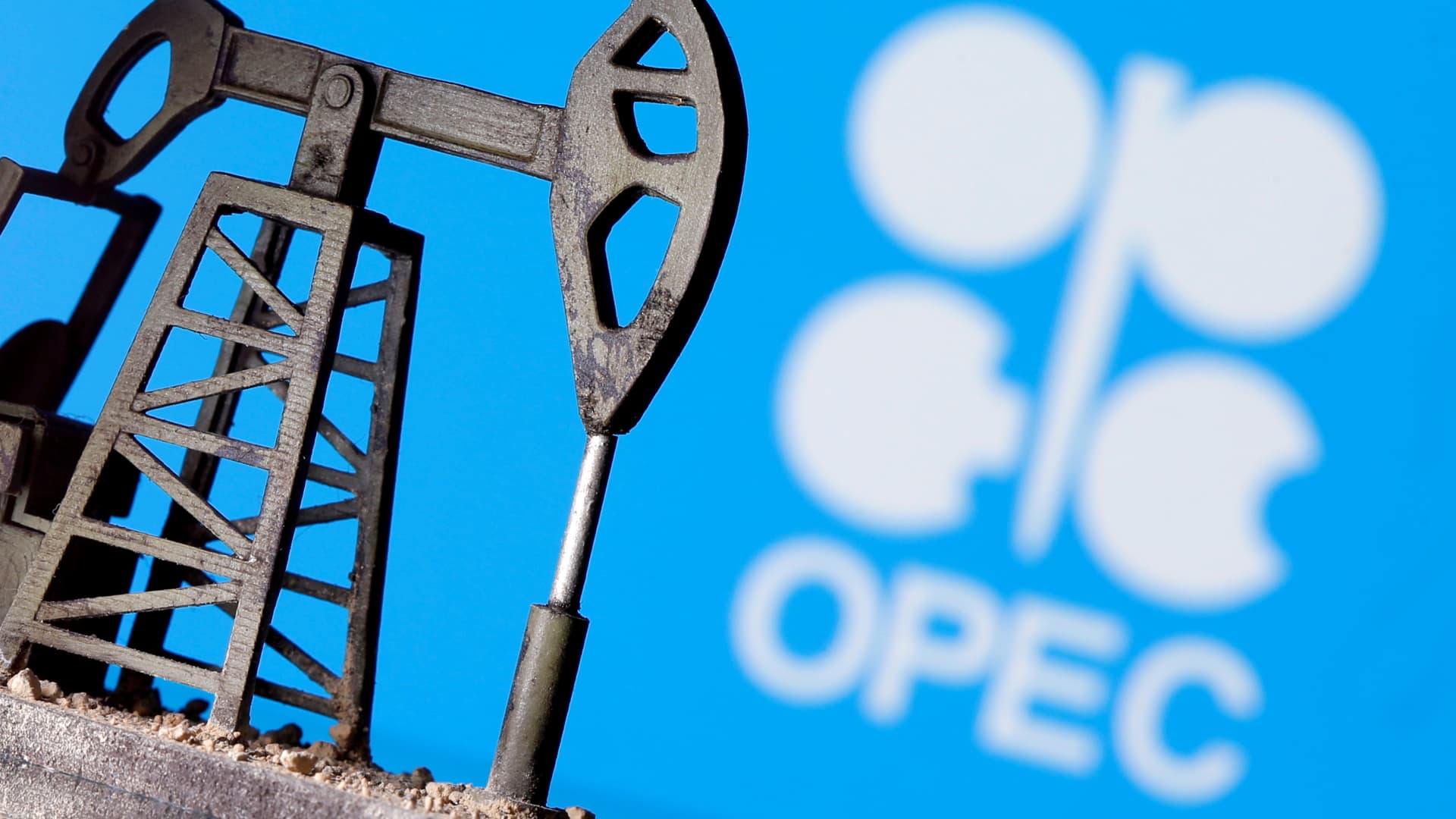
OPEC has refused to switch to bigger output increases as group sources have cited a lack of spare capacity among members to add more barrels as well as the need for further cooperation with Russia as part of the wider OPEC+ group.
Dado Ruvic | Reuters
The Organization of Petroleum Exporting Countries on Monday said the oil and gas industry is being unjustly vilified ahead of a pivotal United Nations conference on the climate crisis later this week.
OPEC Secretary General Haitham Al Ghais pushed back against accusations that the industry is not doing enough to reduce carbon emissions.
The industry was taken to task last week for its role in the climate crisis and its commitment to clean energy by the Paris-based International Energy Agency (IEA).
Oil and gas companies face a “moment of truth” in which they must choose between deepening the climate crisis or embracing the shift to clean energy, according to an IEA report published last Thursday.
The OPEC chief, who’s also a Kuwaiti oil executive, accused the IEA of downplaying the importance of energy security, access and affordability, all of which need to be balanced with reducing emissions, he said.
‘Undiplomatic’
“It also unjustly vilifies the industry as being behind the climate crisis,” Al Ghais said in a statement, calling the IEA’s accusations “undiplomatic to say the least.”
The charges come ahead of the United Nations Climate Change Conference, or COP28, that opens Thursday, hosted by the United Arab Emirates, an OPEC member.
OPEC’s scathing statement also comes amid reports that the UAE sought to use the conference as a platform to lobby for oil and gas deals.
Al Ghais accused the IEA of trying to curtail the “sovereign actions” of developing nations by putting pressure on their national oil companies.
But IEA chief Fatih Birol said the industry needs to come to terms with the “uncomfortable truth” that a successful clean energy transition will require scaling back oil and gas operations, not expanding them.
The U.S. oil giants Exxon and Chevron are doubling down on fossil fuels, each announcing with mega acquisition deals in October, purchasing Pioneer Natural Resources and Hess respectively.
Just 1% of global investment in clean energy comes from the oil and gas industry, according to the IEA. Producers would need to invest 50% of their capital expenditures in clean energy by 2030 to support the long-term goal of limiting climate change to 1.5 degrees Celsius, according to the IEA.
Birol also criticized the overreliance on carbon capture technology, which several oil and gas companies, such as Occidental Petroleum, have made central to their emission reduction targets. The industry needs to let go of the “illusion that implausibly large amounts of carbon capture are the solution” to climate change, he said.
The OPEC chief, meanwhile, defended carbon capture, saying the technology has been endorsed by U.N. bodies as part of the solution. The technology captures carbon dioxide from industrial operations before emissions enter the atmosphere and stores the gas underground.
Al Ghais also said oil and gas companies are making major investments in renewables and technologies that reduce emissions. But one energy source should not be elevated over another, he said.
Balancing security, access and affordability with emissions reductions will require “major investments in all energies, all technologies, and an understanding of the needs of all peoples,” the OPEC chief said.
